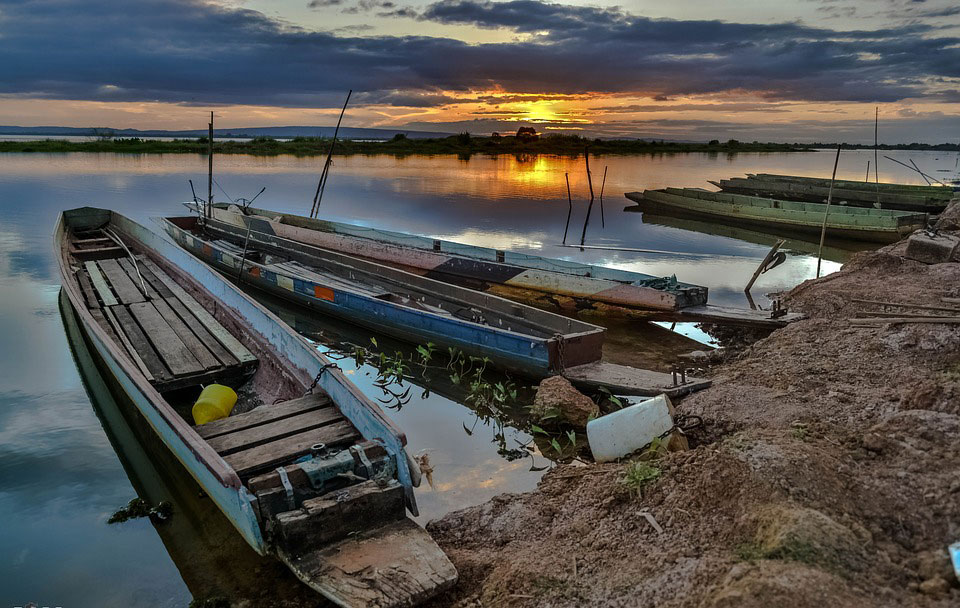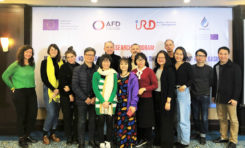
Call for contribution to a collective book on:
“Inequalities and environmental changes in the Mekong River Basin”
Co-editors Alexis Drogoul1, Etienne Espagne2, Linh Huynh Thi Phuong3, Stéphane Lagrée4
AFD Editions
Rising inequalities and accelerating environmental changes are two of the most significant challenges of the twenty-first century. But how do they relate to each other? Do they have common drivers? As stated in Hamman et al (2018), most research is one-directional, i.e. focusing on the specific effects of social inequalities on the environment (Cushing et al., 2015) or vice-versa (De Laubier Longuet, 2019), and fails to take into account a more complex understanding of how inequality and the state of the environment interact with each other.
Throughout South-East Asia, and especially in the least advanced countries, socio-economic inequalities, relating to income, employment, education, access to land, as well as demographic differences, such as age or gender, are more and more associated with unequal exposure to environmental risk factors (Bangalore et al., 2016). These factors can represent direct threats to people’s lives (landslides, flooding, etc.), or contribute, in an indirect way, to the degradation of agricultural land, propagation of diseases, or, more widely, health issues (air pollution, etc.) (Narloch and Bangalore, 2018). They most often put already disadvantaged people at significantly higher risk regarding environmental effects. Environmental risk factors are not only consequences of global climate changes. They are also (and, until now, most often) consequences of the growing pressures of human societies on their ecosystems. As shown in Inghals et al. (2018), the Mekong region has been radically transformed in the last ten years by the pace and scale of large-scale land acquisitions through foreign and domestic investments, leading to growing inequalities, rural unrest, and a process of simplification and commodification increasingly replacing traditional and natural systems.
In an attempt to gather evidences and works on this topic, we call for contributions to a collective book. We specifically look for manuscripts that illustrate the inequality – environmental nexus in the region (Mekong/Southeast Asia covering one the five countries) as a whole or in one/some of the following five countries: Myanmar, Laos, Thailand, Cambodia and Vietnam. The research should cover one or several environmental elements, including land, water, air, agriculture, climate, ecosystem, biodiversity, forest, mining, in relation to one or various dimensions of inequality, including but not limited to economic (eg. Access to various needs for life), social (eg. Identity, class), cultural (eg. Perspective, belief), political (eg. Participation), spatial (eg. Geography), environment (eg. Environmental Justice) and knowledge (eg. information, education) inequalities. Among others, we specifically put priority on researches that include comparative elements: e.g., comparisons before and after social or environmental changes, or between social groups, communities, places or countries.
This book comes as a by-product of an ongoing systematic review of the inequality-environmental changes nexus in the Mekong region, which will propose, through an exhaustive and qualified search in both the scientific and grey literatures, and critical appraisal in assessing the quality of the collected documents. A synthesis of this systematic review will appear in the book, together with an operational conclusion relative to the state of the current knowledge. One of the main aims of this call for contributions is to illustrate the complexity of the nexus with different case studies, and also propose the broadest possible coverage in terms of geographical and thematic scopes. We therefore reserve the possibility to suggest narrowing or enlarging, when necessary, the scope of the proposals.
Timeline:
- 29th of February 2020: submission of an extended abstract (three-page minimum) including a description of the research objectives, the methodologies, some preliminary results, and bibliography.
- 13th of March 2020: notification of acceptance (for both the conference and the chapter)
- 1st of July 2020: submission of the full chapter
- 3rd of August 2020: reviews due by the editors and anonymous referees
- 14th of September 2020: final version of the chapter due
- November 2020: first pdf version of the book
Language: English
Contact persons:
Huynh Thi Phuong Linh, huynhtplinh@gmail.com
Etienne Espagne, espagnee@afd.fr
Stéphane Lagrée, stephane.lagree@univ-nantes.fr, fsp2s@yahoo.fr
Alexis Drogoul: alexis.drogoul@ird.fr
1 Senior researcher at IRD (French Institute of Research for Development), representative for Vietnam and the Philippines.
2 Senior economist at French Development Agency (AFD).
3 Researcher in Social Sciences at IRD.
4 International coordinator of the ERASMUS+ WANASEA project: “Strengthen the Production and Management and Outreach Capacities of Research in the field of WAter and NAtural Resources in Southeast Asia”, Nantes University.






